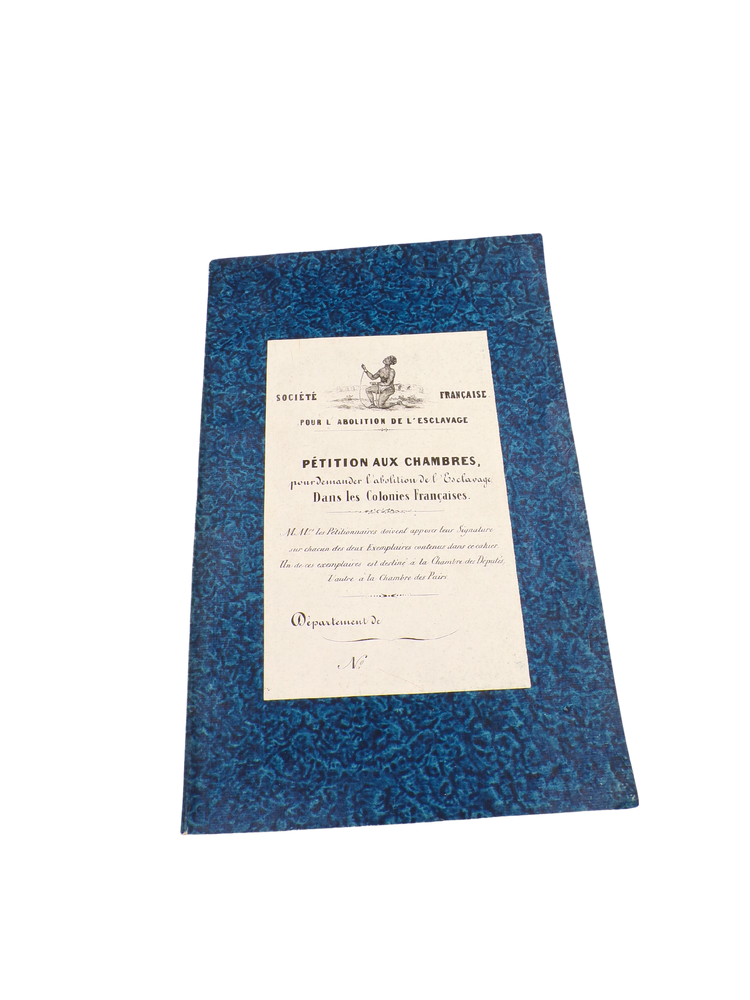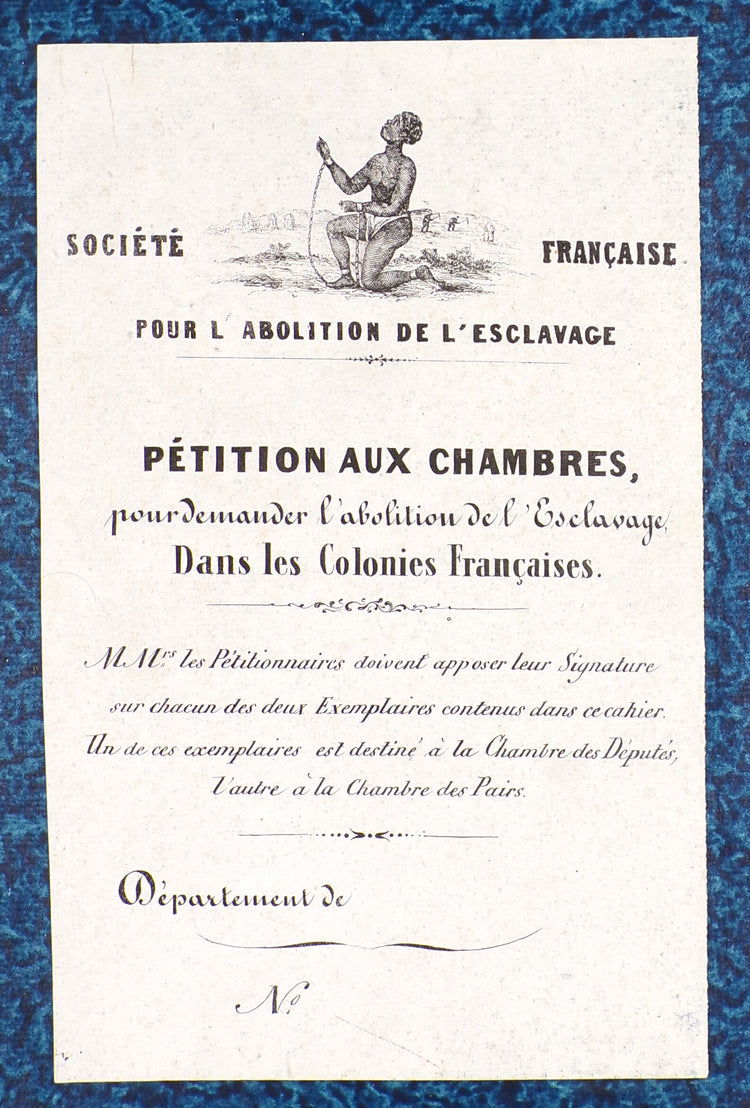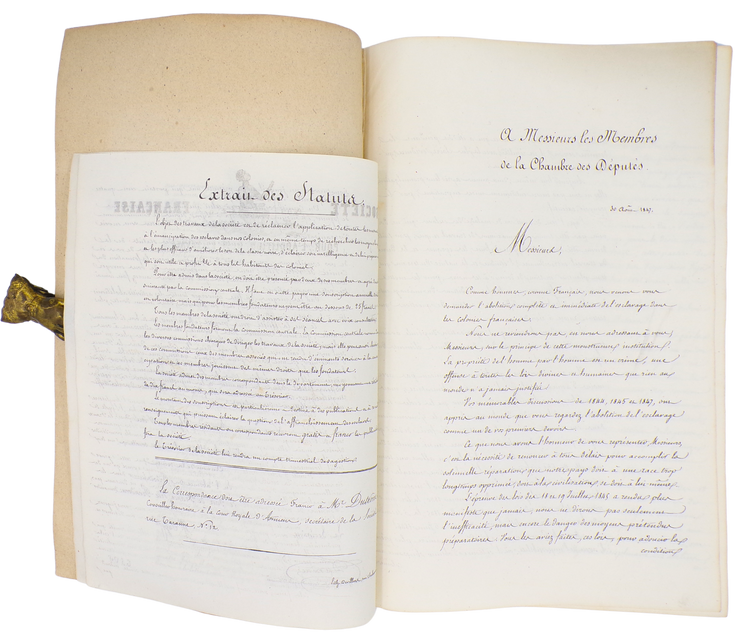Pétition aux Chambres, pour demander l'abolition de l'Esclavage dans les Colonies Françaises. 1847.
- Regular price
- €0,00 EUR
- Regular price
-
- Sale price
- €0,00 EUR
- Unit price
- per
The petition that ended slavery
Société française pour l'Abolition de l'Esclavage; Cyrille Bissette (1795-1858); Victor Schoelcher (1804-1893); Henri Dutrône (1796-1867).
Pétition aux Chambres, pour demander l'abolition de l'Esclavage dans les Colonies Françaises.
[Paris], Société française pour l'Abolition de l'Esclavage, lithographed by Duvilliers, 1847.
Folio, [4], 16, [12], 16, [12] pp. & 8 loosely inserted leaves.
Contemporary marbled paper wrappers, with a lithographed title label on front cover showing the abolition movement emblem.
An extremely rare, unfilled copy of the petition that ended slavery in the French colonies. A remarkable piece of civic engagement.
This booklet, created by the Société française pour l'Abolition de l'Esclavage (SFAE), was instrumental in the abolition of slavery proclaimed by decree on April 27, 1848. It is seemingly only recorded at the Bibliothèque nationale de France.
Activists used copies of this petition to collect signatures by going door to door. The booklet we offer here contains two lithographed copies of the petition’s handwritten text, along with blank tables for signatures. This is preceded by a 4-page lithographed autographed letter by Dutrône, the secretary of the Society. The title label on the front cover includes a blank space for the name of the department where the signatures were collected. To help persuade people to sign, this booklet also includes a set of 8 loose lithographed sheets illustrating the harsh realities of slavery.
The importance of the Society and this petition in the abolition of French colonial slavery cannot be overstated. As noted by Jennings: “Neither economic factors nor slave resistance brought about the abolition of French colonial slavery in 1848. Rather, emancipation was realized thanks to the development by French abolitionists of an anti-slavery culture during the July Monarchy. Gradualist and prudent during the 1830s, French anti-slavery became progressively more immediatist in the 1840s, and was able to implement the liberation of France’s 250,000 colonial slaves as soon as the Revolution of 1848 overthrew the immobile and oppressive Orleanist monarchy.”
Couldn't load pickup availability
Share







Contact
Email: hugo@artemrarebooks.com
Phone: +31651042297
Visit us on appointment at:
Former US Embassy
Lange Voorhout 102
2514EJ
The Hague (The Netherlands)
Shipping address:
Nannie van Wehlstraat 51
2548MN
The Hague
The Netherlands







